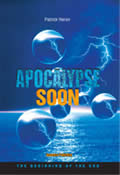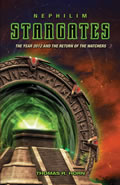By Al Duncan
May 27, 2011
NewsWithViews.com
In 2001, Dr. Stanley Monteith and I co-authored an article that was published in the Lake County Record Bee entitled, America: Democracy or Republic, and what does it matter? Today, most Americans mistakenly believe that our form of government is a democracy. In the above referenced article, I examine that belief. I have herein included excerpts from that article that substantiate the original intent of America’s founding fathers.
Dr. Stan and I wrote, “If you asked 100 people whether we are a democracy or a republic, the overwhelming majority would say that we are a democracy. What is more disheartening, the overwhelming majority would not have a clue as to what a republic is.”
Ancient Athens was a prosperous city-state until it became a democracy in 508 B.C. Then the will of the majority became the law of the land, and the minority had no rights. The ruling oligarchy manipulated the populace and plunged Athens into a series of disastrous wars. Class warfare broke out when the poor sought to steal the wealth of the rich. Modern pundits claim that Athenian democracy was different from the democracy being imposed on us today, but that isn't true.
If you study the history of civilization, you will find that all civil governments have eventually enslaved their citizens. There have only been two instances when men have been free, and on both occasions the populace lost their freedom because they allowed evil men to corrupt their courts. The first instance was three thousand years ago when the children of Israel lived under God's law, and there was no formal government. In those days people could do whatever they wished as long as they obeyed the Ten Commandments.
If there’s one thing that we have learned from history, it is that we never learn from history. And those who do not learn from history are doomed to repeat it.
Our republic lasted 160 years and provided more freedom to more people than any other government in the history of the world. During the fourth decade of the last century things began to change. Most Americans weren’t aware of these drastic changes, they were being sidetracked by events such as the great depression, World War II, the rebellious 60s, and the constant barrage of financial, psychological, and physical pressures, mostly due to the invasion and expansion of the federal government into our lives.
Both William Blackstone and John Locke promoted the belief that civil laws should be based on God's law. Those ideas were incorporated into the opening paragraphs of the Declaration of Independence, and John Locke's phrase life, liberty, and (or) property was used twice in the Constitution.
If you read our Constitution, the Declaration of Independence, the Bill of Rights, The Federalist Papers, and the Constitution of any state up to 1950 you’ll never find the word democracy used other than to condemn that form of government and declare that our nation is a republic.
The Bill of Rights was designed to limit the authority of the federal government. The first eight amendments limited acts of Congress in respect to our personal freedom. Amendments nine and ten limited acts of Congress to the issues cited in Article One, Section 8 of the Constitution.
So why is America being repeatedly referred to as a democracy when we are a republic? Is there an intentional effort to deceive the American people into believing we are a democracy in order to change it from a republic? Who benefits from a democracy and who benefits from a republic?
Permanent law rules a republic. Ever-changing impulses of men rule a democracy. In a democracy, elected officials can pass any sort of legislation they desire as long as they persuade the majority to agree. In a republic, the law restricts elected officials as to what they can or cannot do.
In a democracy, the majority rules, and the rest have no unalienable rights. In a democracy, the government can take wealth from one group (the working class) and give it to others as long as they persuade the majority to agree. If individuals did that it would be considered stealing, but when done with government authority it is considered lawful. This form of rule leads to dishonesty, corruption, a breakdown in law, and eventually chaos and anarchy.
Over 200 hundred years ago Professor Alexander Tyler explained why democracies fail: “A democracy cannot exist as a permanent form of government. It can only exist until [a majority of] the voters discover they can vote themselves largesse (freebees/welfare) from the public treasury. From that moment on the majority always votes for the candidate promising the most benefits from the public treasury, with the result that a democracy always collapses over loose fiscal policy (taxing and spending), and is always followed by a dictatorship.”
Plato lived in Athens during the tumultuous years that preceded the end of that society, and he wrote about what he witnessed in Chapter VIII of his book, Plato stated, “A lynch mob is an example of a democracy. The majority decides who will be executed; the only negative vote comes from the man with a rope around his neck.”
Democracy has been likened to three wolves and a sheep voting on what they will eat for dinner. On the other hand, a republic would be a society with laws that prohibit eating sheep, and every animal would be armed to protect themselves against wolves.
Lord Acton noted, "The one pervading evil of democracy is the tyranny of the majority, or rather of that party, not always the majority, that succeeds, by force or fraud, in carrying elections."
In a democracy, laws can be changed at any time by the vote of the majority, and the majority can always be compromised or bribed with promises from the public treasury.
John Adams, the second President of the United States, warned: “Remember, democracy never lasts long. It soon wastes, exhausts, and murders itself. There never was a democracy that didn’t commit suicide.”
Oscar Wilde wrote: “Democracy means simply the bludgeoning of the people, by the people, for the people.”
When half of the people get the idea that they do not have to work because the other half is going to take care of them, and when the other half gets the idea that it does no good to work because somebody else is going to get what they work for, that my dear friend, is the beginning of the end of any nation.
So why do so many people believe we are a democracy? Because they have not been educated correctly, they have been intentionally deceived and, there has been a well- financed and well- orchestrated effort to convince them that our elected officials can do whatever they wish as long as a majority of them agree on a course of action. The exact opposite is true. Our Founding Fathers believed in the rule of law and hoped to prevent future generations from voting themselves into slavery, which is why they created a republic, and not a democracy.
Men have always established governments for protection. Our founders knew that laws to protect the lives, liberty, and property of citizens were necessary, but once those rights were secured, additional laws only restrict men’s freedom. They knew that liberty and limited government were synonymous, and that tyranny and total government were synonymous, so they constructed a system to limit our government. They also knew that there was no effective way to limit the misuse of power in a democracy, so they established a republic, where men would be ruled by law rather than by the will of the majority.
Thomas Jefferson warned, “In questions of power, let no more be heard of confidence in man, but bind him down from mischief by the chains of the Constitution.”
Over 200 hundred years ago, Professor Alexander Tyler explained why democracies fail: “A democracy cannot exist as a permanent form of government. It can only exist until [a majority of] the voters discover they can vote themselves largesse (freebees/welfare) from the public treasury. From that moment on the majority always votes for the candidate promising the most benefits from the public treasury, with the result that a democracy always collapses over loose fiscal policy (taxing and spending), and is always followed by a dictatorship.”
James Madison, wrote, ". . . democracies have ever been spectacles of turbulence and contention; have ever been found incompatible with personal security, or the rights of property; and have, in general, been as short in their lives as they have been violent in their deaths."
"Hold on, my friends, to the Constitution and to the Republic for which it stands. What has happened once in 6000 years, may not happen again. Hold on to the Constitution, for if the American Constitution should fail, there will be anarchy throughout the world." Daniel Webster
Thomas Jefferson anticipated the destruction of our republic. He wrote: “It has long been my opinion that the germ of dissolution of our federal government is in the Constitution of our Federal Judiciary; an irresponsible body, gaining a little today and a little tomorrow, and advancing its noiseless step like a thief, over the field of jurisdiction, until all shall be usurped from the states, and the government of all be consolidated into one. To this I’m opposed; because, when all government, domestic and foreign, in little as in great things, shall be drawn to Washington as the center of all power, it will render powerless the checks of one government on another, and will become as venal and oppressive as the government from which we separated. It will be as in Europe, where every man must be either pike (on the top) or gudgeon (on the bottom).
The opening phrase of the First Amendment to our Constitution proclaims: "Congress shall make no law respecting an establishment of religion, or prohibiting the free exercise thereof…"
Astonishingly, this has been rendered to be a “separation of church and state.” Thus, the Federal Judiciary is now deciphering the law to its advantage rather than assert what the law clearly affirms.
| Subscribe to the NewsWithViews Daily News Alerts! |
Benjamin Franklin warns, "Man will ultimately be governed by God or by tyrants."
"It is when people forget God that tyrants forge their chains." Patrick Henry
As the Bible specifically addresses humanity’s behavioral-traits and provides agape/love as the solution, which is to safeguard the spiritual betterment of others and includes a selfless giving without expecting anything in return, the Constitution also addresses human behavioral-traits by restricting transgressions with laws.
If we are honest, the Bible and the constitution have been obsolete in America for more than 40 years.
� 2011 Al Duncan - All Rights Reserved
Sign
Up For Free E-Mail Alerts
E-Mails are used strictly for
NWVs alerts, not for sale
“Al Duncan is the author of The Master Plan, which is now being revised. He is also compiling a booklet of about 60 short articles for publication and future availability. Until recently, he wrote a weekly column for a local newspaper, the Lake County Record Bee, distributed by Associated Press. The readers were basically secular and unaware of the New World Order, so his articles were written hoping to educate the reader on this subject. However, Al realizes that NewsWithViews attracts an informed reader, who is seeking to expand his or her understanding of the truths behind the daily events, and how these truths can best help them meet the challenges ahead.
“Al is
the fourth generation of Real Estate Brokers and for the past eight years
he has owned Al Duncan Real Estate, Inc. in Clearlake, California. For
the past seven years he has been on the financial committee, participated
as a Sunday greeter and head usher at Lake County Bible Fellowship in
Lakeport, California.”
E-Mail: alduncan@pacific.net














 Share
This Article
Share
This Article








